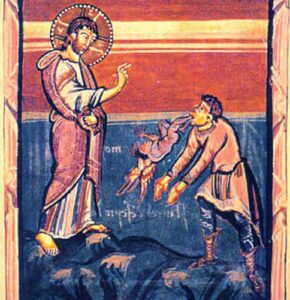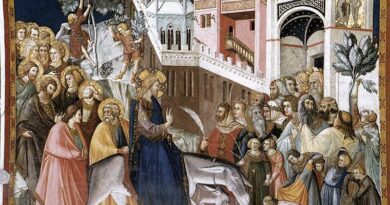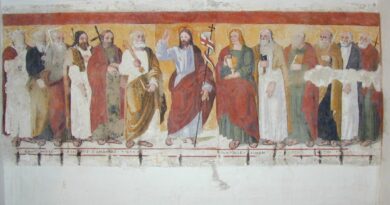Fourth Sunday of Ordinary Time/B

In today’s Gospel (Mk 1:21-28), in the synagogue of Capernaum, an unclean spirit cries out to Jesus “What do you want of us Jesus of Nazareth? Have you come to ruin us?” contextually declaring the identity of Jesus “I know who you are: the holy one of God!”.
For us too, the knowledge of the true God – not the one we invent to illude ourselves that we are well – could generate the same cry as this impure spirit. In fact, we get busy planning our lives, making our choices… And the true God is in danger of being the great absentee in all our discernment, in all our important decisions, and only ‘coming in’ to ratify what we have decided in an absolute and irrevocable way. But when God occasionally appears in our lives, raises questions, challenges our decisions, shows broader horizons, then we too – like the unclean spirit – angrily cry out “what do you want from us? Have you come to ruin us?” God then risks “ruining” our plans, he allows himself to say something about our lives, and, therefore, such a God is best kept away.
Often, if we are not careful, we run the risk of believing in a God who fundamentally does not exist, a God we have invented to keep us undisturbed, to silence our conscience. A God who basically must leave us serene, and whom we question only when we need him in order to have certain and sure answers in the line of our pre-defined plans.
The true God when he enters our lives is to broaden our horizons, to make us live in truth, which is true freedom. It may happen that our plans are swept away, that we find ourselves where we never wanted to go, that what we have worked so hard for we end losing it. But when God truly enters our lives he makes all things new, takes away what is unnecessary and leads us with patience and love – despite our rebellions – to become the people we can and should be.
The Communion antiphon for today’s celebration is taken from Psalm 30 (Ps 30:17, 18) with the following text:
“Illúmina fáciem tuam super servum tuum,
et salvum me fac in tua misericórdia:
Dómine, non confúndar, quóniam invocávi te.”
(Let your face shine down upon your servant,
deliver me in your mercy.
Lord, let me not be confounded, for I have called upon you).
The attached music, in Gregorian Chant, is taken from the Gradual Triplex published in Solesmes in 1979. The performance is by the Choir of the monks of the Milanese Abbey of Chiaravalle conducted by Giuseppe Gaffurini. The musical track can be found on the CD “L’antico splendore del canto gregoriano” published by La Gloria/Rusty Records in 1991.
A blessed Sunday and heartfelt greetings.


